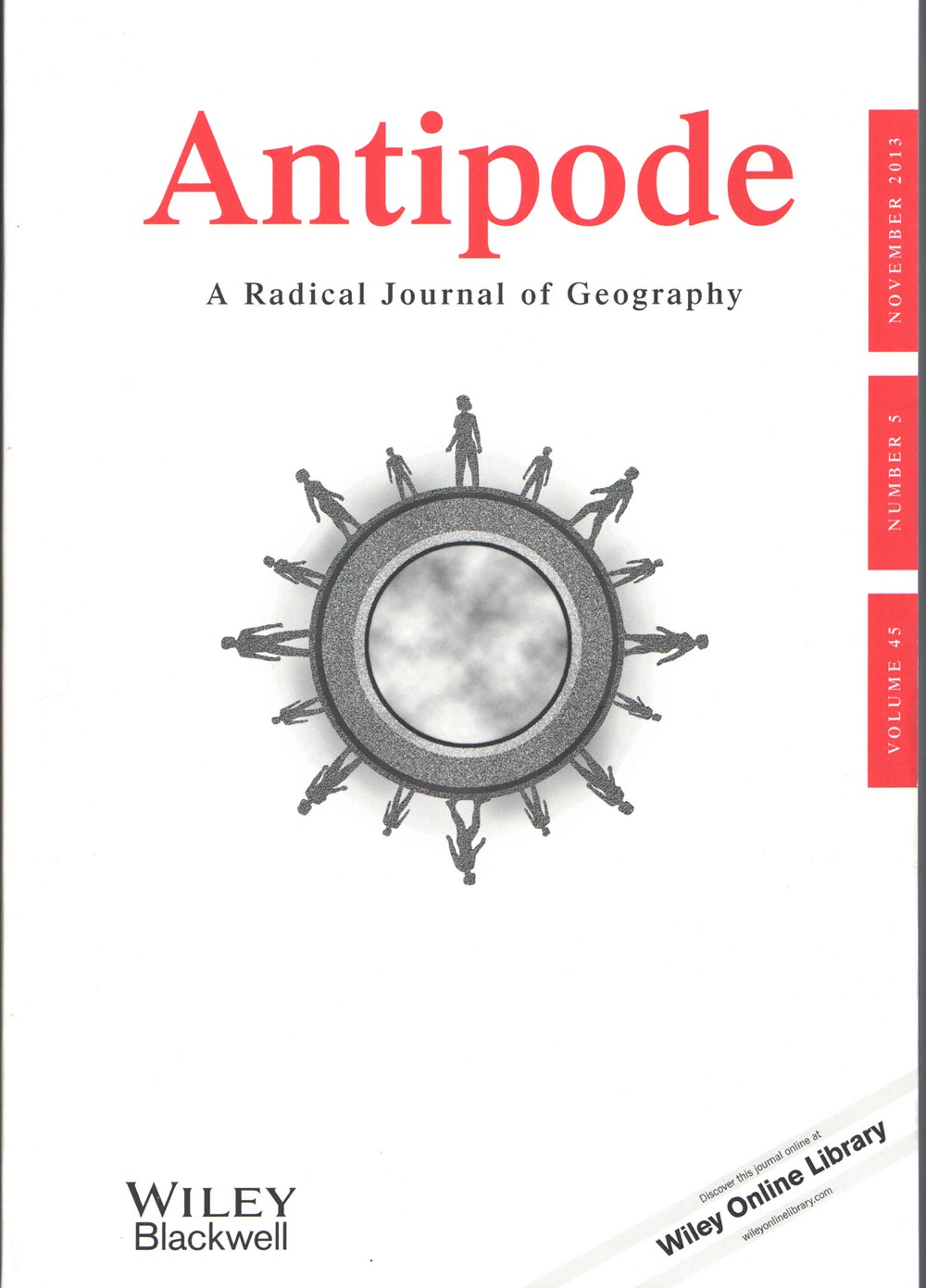当破碎的世界汹涌澎湃杜-萨拉斯瓦蒂的反种姓奇谈
IF 3.6
1区 社会学
Q1 GEOGRAPHY
引用次数: 0
摘要
文学寓言如何引发对种姓、殖民和资本主义生活世界的反思?本文通过达利特女性主义思想家杜-萨拉斯瓦蒂(Du Saraswathi)的两篇短篇小说,探讨了寓言在引发反种姓实践、非殖民化思想以及对生态相互依存关系的反思方面的作用。Bacchisu》("Tip")和《Honnahelu》("Shit and Gold")的创作背景是印度卡纳塔克邦的环卫工人运动,以及垃圾工人为维护其劳动尊严和祖先关系而不断进行的斗争。这两篇小说捕捉了绝大多数来自贱民(前贱民)社区的固体垃圾和污水处理工人的亲密世界,他们在资本主义碎片和种姓社会的破碎中摸爬滚打。这些作品记录了种姓监督员与合同工、警察与地方官僚机构以及城市周边生态之间的关系。萨拉斯瓦蒂的作品以超越种姓社会狭隘现实主义的方式探讨了这些政治问题--将达利特人的烹饪实践、身体欲望、集体抗议的节奏、与精神存在的狂喜邂逅、殖民遗产和生殖未来融合在一起。在达利特人的证词被后殖民法律的证据程序和报复性暴力双重压制的背景下,如何通过寓言来见证融合了精神、生态和政治斗争的反种姓现实?本文章由计算机程序翻译,如有差异,请以英文原文为准。
When Broken Worlds Churn: The Anti‐Caste Fabulations of Du Saraswathi
How can literary fabulation prompt a reflection on caste, colonial, and capitalist lifeworlds? Engaging with two short stories by the Dalit feminist thinker Du Saraswathi, this article considers the role of fabulation in sparking anti‐caste praxis, decolonial thought, and a reflection on ecological interdependence. Bacchisu (“Tip”) and Honnahelu (“Shit and Gold”) are penned in the context of the sanitation workers’ movement in Karnataka, India and the ongoing struggles of waste workers to assert the dignity of their labour and their ancestral relations. Both stories capture the intimate worlds of solid waste and sewage workers, overwhelmingly from Dalit (ex‐untouchable) communities, as they navigate capitalist debris and the brokenness of caste society. They archive relations between caste overseers and contractual workers, the police and local bureaucracy, and peri‐urban ecologies. Saraswathi's writings explore such political concerns in ways that exceed the circumscribed realism of caste society—mingling Dalit culinary practices, embodied desires, rhythms of collective protest, rapturous encounters with spiritual beings, colonial legacies, and reproductive futures. In a context where Dalit testimonies are doubly silenced by the evidentiary procedures of postcolonial law and retributive violence, how can fabulation bear witness to an anti‐caste reality that integrates spiritual, ecological, and political struggles?
求助全文
通过发布文献求助,成功后即可免费获取论文全文。
去求助
来源期刊

Antipode
GEOGRAPHY-
CiteScore
9.50
自引率
10.00%
发文量
111
期刊介绍:
Antipode has published dissenting scholarship that explores and utilizes key geographical ideas like space, scale, place, borders and landscape. It aims to challenge dominant and orthodox views of the world through debate, scholarship and politically-committed research, creating new spaces and envisioning new futures. Antipode welcomes the infusion of new ideas and the shaking up of old positions, without being committed to just one view of radical analysis or politics.
 求助内容:
求助内容: 应助结果提醒方式:
应助结果提醒方式:


